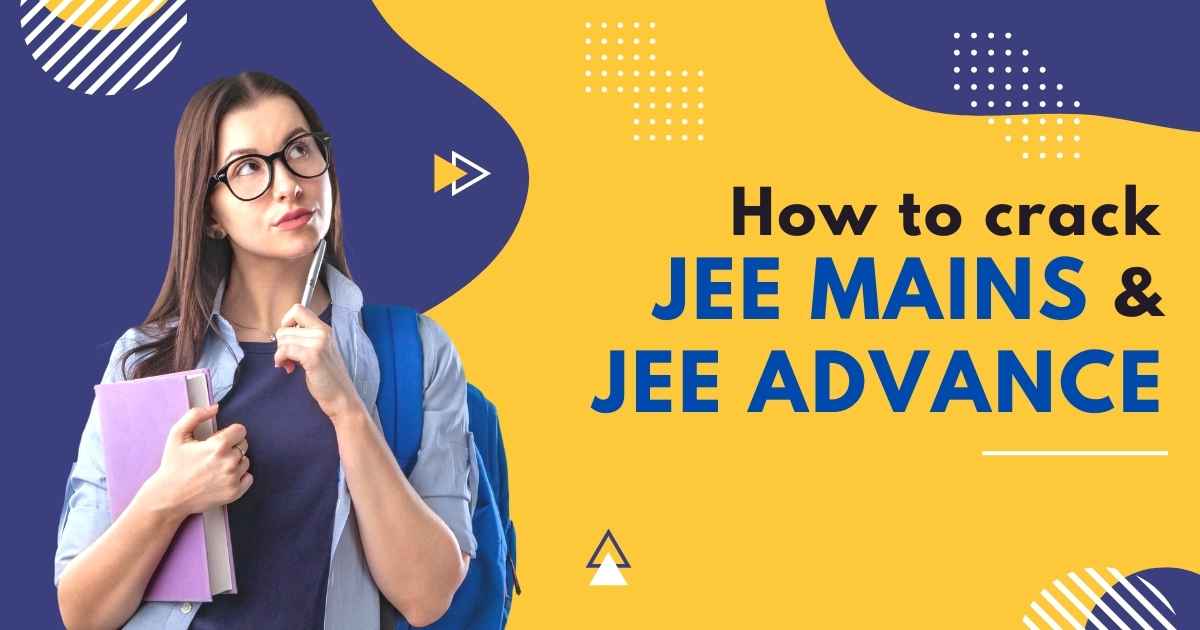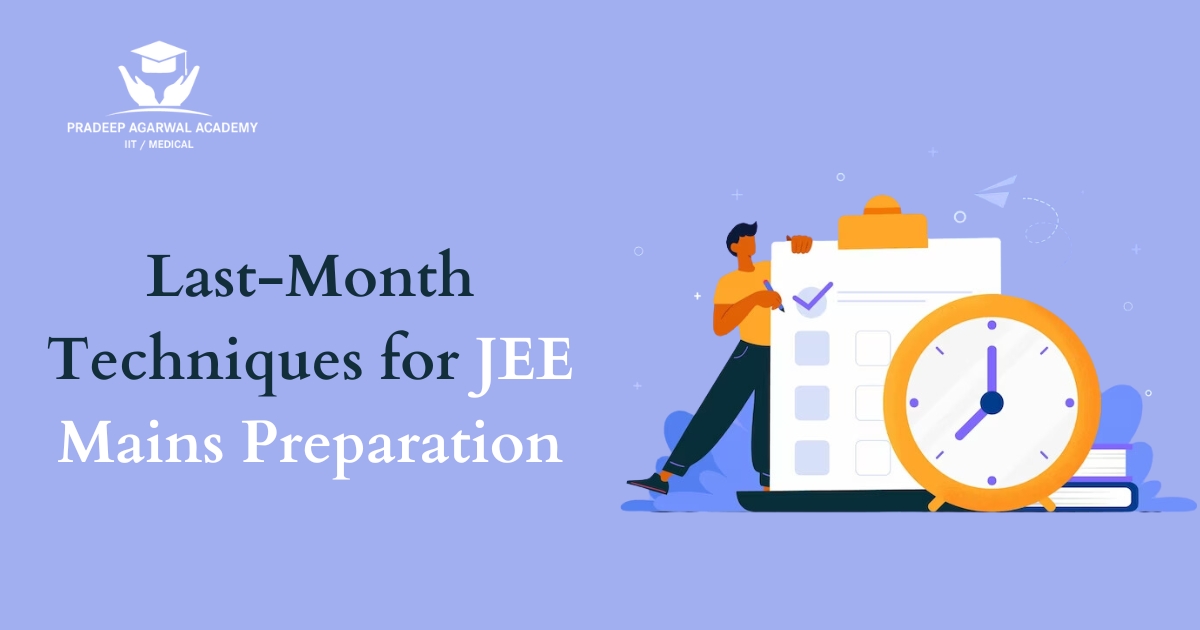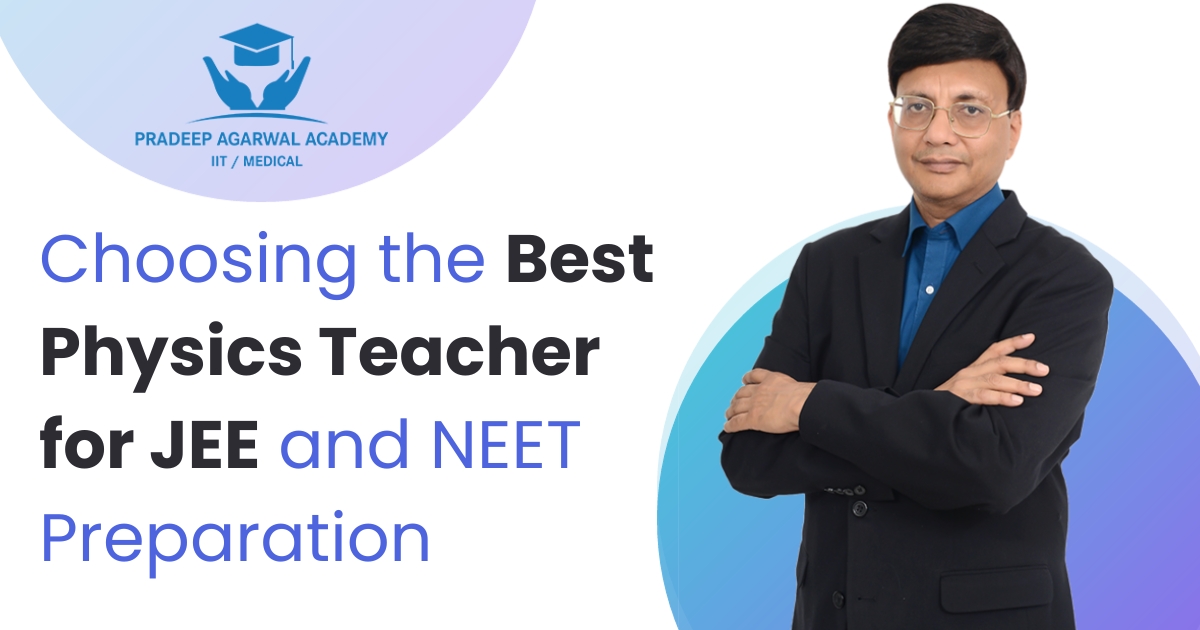
How to crack JEE Mains and JEE Advanced
Both JEE Mains and JEE Advanced are challenging exams to handle. However, if one prepares in a systematic and planned manner, the journey to IIT or any other top engineering college can be real fun. The two exams JEE Mains and JEE Advanced are distinctive in their ways. JEE Mains is conducted by the National Testing Agency (NTA) and JEE Advanced by IITs.
Both JEE Mains and JEE Advanced are computer based online exams but the formats of the question types in the two exams are different that’s why student get question how to crack JEE advanced.
Distinguishing features of JEE Mains and JEE Advanced
- Eligibility Criteria: JEE Mains is open to candidates who have passed the class 12 or equivalent examination in the preceding two years or is appearing in the current year irrespective of their age. JEE Advanced is open only to candidates who have passed the class 12 or equivalent examination in the last year or is appearing in the current year. Further, the candidate must be among top 2,50,000 successful candidates in JEE Mains and less than 25 years of age.
- Number of attempts in a year: JEE Mains is conducted in two sessions of 3 hours each. A candidate need not appear in both sessions. However, if a candidate appears in both, then his/her best of the JEE Main NTA Scores is considered for preparation of the Merit List/ Ranking. JEE Advanced consists of two question papers: Paper 1 and Paper 2 of three hours duration each conducted on same day. Appearing for both the papers is compulsory.
- Exam Pattern: The exam pattern of JEE Mains and JEE Advanced is different. In the JEE Main exam, there are 20 MCQ’s with single correct option and 5 MCQ’s of numerical type where a numerical answer has to be keyed in. For the last 3 years (since the onset of Covid), there had been 10 MCQ’s of numerical type where the candidate is given an option to choose any 5 MCQ’s. In JEE Advanced exam, there are a few MCQ’s with single correct option, a few MCQ’s with one or more than one correct options, a few MCQ’s of paragraph type, a few MCQ’s of matrix match type and a few MCQ’s of numerical type.
- Syllabus: The syllabus for JEE Mains and JEE Advanced is almost the same that covers the 11th and 12th class syllabus of Physics, Chemistry, and Mathematics.
- Difficulty Level: The questions asked in JEE Advanced paper are considerably more difficult than JEE Mains as they are meant for students who have already qualified in JEE Mains and are among the top 2,50,000 rank holders.
- Scoring System: Both JEE Mains and JEE Advanced follow a negative marking system with the criterion of negative marking different for different sections of the paper.
- Admission to Institutes: JEE Mains consists of two papers. Paper 1 is conducted for admission to Undergraduate Engineering Programs (B.E/B.Tech) at NITs, IIITs, other Centrally Funded Technical Institutions (CFTIs), and Institutions/Universities funded/recognized by participating State Governments. Paper 2 is conducted for admission to B. Arch and B. Planning. Through JEE Advanced, IITs offer admission into undergraduate courses leading to a Bachelors, Integrated Masters, Bachelor-Master Dual Degree in Engineering, Sciences, or Architecture. Some centrally funded institutes that use JEE Advanced ranks are Indian Institute of Science, (IISc), Indian Institutes of Science Education and Research (IISERs), Indian Institute of Space Science and Technology (IIST), Rajiv Gandhi Institute of Petroleum Technology (RGIPT), and Indian Institute of Petroleum & Energy (IIPE).
Strategy for preparing for JEE Mains and JEE Advanced
In today’s competitive world, preparation for any exam needs to be systematic and methodical. To be successful, you need to put in hard work with lot of dedication and discipline. As a first step, you must analyses your true capabilities. Every individual is different and so is his area of strength and interest. You must follow your passion and make a career in the area of your strength. Decide and choose your career path early and start working towards it.
For the best result, student needs to make a strategy on how to prepare for JEE Mains and JEE Advanced. Remember, only 1% of the applicants for JEE Mains (after qualifying for JEE Advanced) are ultimately offered seats in IITs. We’re going into detail about the strategies one might use for JEE Mains and JEE Advanced preparation.
- Set realistic goals to achieve your dreams – Only by setting and meeting realistic goals, you achieve success. Goals help you to stay focused on what you want to achieve. Write down your goals, and believe in yourself and take daily consistent action.
- When to start preparation – If your aim is JEE Advanced, the earlier you start, the better. Though it may be alright to start in class 11th, but I would personally recommend to start in class 9th which gives the student a phenomenal edge over others. However, it is important to study at your own individual pace while enjoying every moment of it.
- Choose the Mentors Wisely – This is the most difficult thing to do. There are 3 characteristics of a good Mentor. He must be technically very sound, must be a good motivator and must create a system to be able to give personal attention to each student.
- Choose the Books Wisely – Instead of collecting a lot of study materials, it is best to focus on one or two books only that are exhaustive, contain a large number of practise problems in a well-structured manner and most importantly, their proper solutions provided for the student to refer.
- Stay relaxed, relish the process – Stay relaxed and take it easy. If your approach and planning is proper, believe me, the process of IIT preparation is full of excitement. What is required is your own conviction, motivation, professional guidance, simple tools for solving problems fast and immediate clarification of doubts as they come.
- Divide preparation in different levels – Study with a step wise approach. Whenever you start a new chapter, first complete the NCERT level including all derivations that may come in board exams, then practice all problems of JEE Main level and finally practice all problems of JEE Advanced level. This will make you feel more comfortable and you will be able to complete the chapter much faster.
- Do not fret over failures – Keep in mind that any competitive exam contains easy level, medium level and difficult level problems. If you are able to solve medium level problems with accuracy, you will obtain a very good rank. So, during your preparation, do not worry if you are not able to solve difficult problems. Just keep them aside to tackle them later or simply ignore them.
- Don’t compare with others and don’t follow others – Concentrate on your studies. Don’t worry about what others do and don’t get influenced by others. Everyone is different, have different way of grasping and presenting things. Be focused on your own target.
- Form a Preparation Schedule – Task the plan and plan the work. A well-planned schedule serves as the cornerstone of preparation focused on results. As we have only 24 hours in a day, do not target on the number of problems to be practised in given time, but target on the amount of time to be devoted on a particular topic and be content with whatever number of problems you are able to practise in that time frame. This will help you in relieving pressure which is seen in students preparing for the competitive exams.
- Work smarter rather than just harder – It is the Quality over Quantity which is more important. Studying with concentration and analysing the principles and concepts with a clear mind will bring in efficiency and you will be able achieve the same targets in much less time
- Speed and Accuracy – You must solve a problem correctly the very first time. There is no room for an error as this would severely affect your rank. Solving problems accurately becomes our habit which can only be inculcated by practice. Accuracy can never be compromised with speed.
- Focus on solving the problems fast – To obtain a good rank in JEE Mains or JEE Advanced, just solving a problem is not enough. Focus must be on how to solve a problem fast and that too without compromising on accuracy. Note that speed can be increased only by a better approach to solve the problem in a very relaxed manner rather than solving by longer method and hurriedly skipping steps. While practising assignments, make it a habit to think of alternative approach to solve the same problem.
- Keep formulae handy for easy reference – Do not put yourself under pressure in memorising formulae. Just keep them handy for easy reference. As you keep practicing problems, you will experience that with continued usage of formulae and concepts, they easily become your own property.
- Make your own short notes – This is a very useful technique for many reasons. Firstly, making notes automatically brings in a lot of concentration. Secondly, you generally write only after giving a sufficient thought and analysis. Finally, these are your own notes. They help you in your quick revision.
- Physical exercise or playing – Engaging in some physical activity is recommended. It is good to simply do some jogging. This gives your body and mind the much needed break and relaxation.
- Develop an exam strategy – Start with the subject you are most comfortable with. Time being always scarce, pick out easy problems first and do not waste time in problems that you find difficult. Last but not the least, do not worry if you are not able to solve problems. You can still obtain a good percentile. You may think of it as an opportunity, if the paper is tough for you, it must be tough for others too. Let others panic, you need to maintain your cool and solve whatever problems you can in the allotted time.
If you carefully follow these recommendations, you will enjoy every moment of the learning process in your journey to success. You may require a positive push from the best physics teacher for JEE. We advise you to join Pradeep Agarwal Academy for a trusted JEE tutoring programme as soon as possible.





